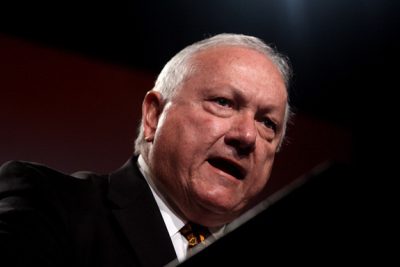Immigration Reform
The last time Congress updated our legal immigration system was November 1990, one month before the World Wide Web went online. We are long overdue for comprehensive immigration reform.
Through immigration reform, we can provide noncitizens with a system of justice that provides due process of law and a meaningful opportunity to be heard. Because it can be a contentious and wide-ranging issue, we aim to provide advocates with facts and work to move bipartisan solutions forward. Read more about topics like legalization for undocumented immigrants and border security below.
New “E-Verify Self Check” Pilot Program is Not a Cure-All
BY TYLER MORAN, NATIONAL IMMIGRATION LAW CENTER E-Verify has a problem: Washington politicians want to force American employers to use the electronic employment verification system, but the system is still not ready for prime time. On Monday, the Department of Homeland Security (DHS) took a step toward remedying the database error rates by announcing E-Verify “Self Check.” This pilot program will allow people in select states and the District of Columbia to go online and verify their identity and authorization to work in this country—and to fix any errors before applying for a job with an employer who uses E-Verify. While a positive step, the pilot program is only one piece of the puzzle in fixing E-Verify and will likely be inaccessible to many—including the low-income workers who most need it. Read More

Immigrant Entrepreneurs May Speed Up Our Economic Recovery
As America’s economic recovery continues to be a national priority, leaders on both sides of the aisle are finally beginning to look at reforming our nation’s immigration system as a strategy for promoting job creating and growth. President Obama commented in his State of the Union Address that instead of expelling immigrants, we should make it easier for them to start new businesses. This Monday, House Majority Leader Eric Cantor (R-VA) commented that “if bringing in high-skilled workers from abroad helps us keep thousands of jobs here in America, our antiquated laws should not be a barrier.” And in a bipartisan effort last week, Senators John Kerry (D-MA), Mark Udall (D-CO), and Richard Lugar (R-IN) introduced the StartUp Visa Act of 2011 (Senator Kirsten Gillibrand (D-NY) has also joined as a co-sponsor). The bill is intended to “drive job creation and increase America’s global competitiveness by helping immigrant entrepreneurs secure visas to the United States.” Read More

Is Arizona’s Rejection of Anti-Immigrant Measures a Bellwether for Other States?
SB 1070 author, state Sen. Russell Pearce, also authored the latest string of anti-immigrant measures which were rejected last week . Photo by Gage Skidmore. Last week, Arizona’s business community worked with state Senators to kill an omnibus package of anti-immigrant bills—bills which included provisions to limit citizenship to the U.S. born children of immigrants and would have teachers and medical professionals checking people’s papers. While the content of these bills seemed like a draconian stretch, many thought if any state was going to pass such measures, it would be Arizona. But common sense prevailed when these anti-immigrant bills were overcome by sensible voices asking the right questions—are these bills economically or politically feasible for our state? The question now is whether other states will again take Arizona’s cue on immigration. Read More

Businesses Warn State Lawmakers That Immigration Legislation Will Break the Bank
As many state legislative sessions come to a close, lawmakers are giving serious thought about proceeding with restrictive immigration legislation. Legislators in some states (Colorado, Iowa, Kentucky, Nebraska, New Hampshire, South Dakota, Virginia, Wyoming, and most recently, Arizona) have canned restrictive enforcement legislation due to prohibitive costs and push back from business and community groups while lawmakers in other states (Kansas, Indiana, and Oklahoma) continued the debate this week. Although legislation continues to move in states like Georgia and South Carolina, one thing is certain—the fiscal consequences of these laws are real and business groups are putting their legislators on notice. Read More

Foreign-Born to Help Fill Gap in U.S. Doctors
While Americans are justifiably worried about high unemployment levels and the “jobless recovery,” Reps. Lamar Smith, Steve King, and Elton Gallegly are attempting to use America’s concerns as an opportunity to pass more restrictive immigration policies. In fact, immigration restrictionists across the country have taken advantage of the poor economy to push their anti-immigrant agenda. But there’s another story to be told. Last week the Wall Street Journal reported that there are simply not enough doctors in the U.S. to treat the population. Some areas are already experiencing doctor shortages, and as the new health care law is fully implemented, more and more people will be eligible for health insurance and will need care. As many as 150,000 doctors could be needed in the next 15 years. Immigrants will most certainly be helpful in filling the gap. Read More

Utah Governor Signs Series of Controversial Immigration Bills
Utah Governor Gary Herbert signed a package of controversial immigration bills today in the Utah's state capitol. The measures include a series of immigration bills passed by Utah’s legislature last week, including HB 497 (a revised SB1070-inspired immigration-enforcement bill), HB 116 (which creates a guest worker program through federal waivers) and HB 466 (which sets up a temporary worker pilot program with Mexico). While many have applauded Utah’s efforts to look beyond the narrow scope of enforcement-only measures to a more sensible immigration debate, the same people question the constitutionality of these measures—including the state’s own Attorney General. Read More

States Legislators Attempt to Reframe Enforcement-Only Approach to Immigration
Heading into legislative sessions this year, many state lawmakers seemed to be on a collision course with enforcement-only immigration proposals. This week, however, legislators in Utah at least attempted to look beyond the narrow scope of enforcement to proposals that aimed at a more balanced immigration debate. States like Nebraska and Kentucky also attempted to reframe the debate this week by stalling or rejecting enforcement-only measures while groups in other states—Kansas, Alabama, South Carolina, Georgia and Florida—continued to blow the whistle on restrictive measures that neither solve our immigration problems nor help the state economy. Read More

House Subcommittee Tries to Propagate Myth that Immigrants Steal Jobs
Today’s House Subcommittee hearing on Immigration Policy and Enforcement, clumsily entitled “New Jobs in Recession and Recovery: Who Are Getting Them and Who Are Not,” was clearly intended to sow fear. In his opening statement, Subcommittee Chairman Elton Gallegly (R-24th/CA) wasted no time in sounding the alarm that unemployed native-born workers are being left to twist in the wind as immigrants gobble up the few new jobs which have become available since the end of the Great Recession. Yet the preponderance of the evidence presented during the hearing failed to support that conclusion. Read More

Utah’s Immigration Solution Not a National Model
Washington D.C. – Late Friday night, the Utah Legislature passed three immigration-related bills that await Governor Herbert’s signature or veto. Utah’s policy discussions were guided by the principles of a much-lauded Utah Compact, which brought together leaders from political parties, business, labor, and faith-based organizations for a thoughtful dialogue about… Read More

Police Forum Recommends Limitations on Investigating Immigration Status
The role of local police in immigration enforcement continues to be a complex policy and legislative issue at both the state and federal level. State legislatures, for example, are contemplating bills designed to increase the role of local police in immigration enforcement while federal legislation targets cities with so-called “sanctuary policies.” And as programs like 287(g), Secure Communities and other federal/local partnerships continue to expand, local police are now more involved in identifying undocumented immigrants than ever before. Many law enforcement officers, however, find that enforcing federal immigration law may interfere with their ability to prevent crime and keep neighborhoods safe, so they have designed tailored local policies to ensure that they maintain the best possible relationship with their communities. In a new report by the Police Executive Research Forum (PERF), local police speak out on the difficulties of enforcing immigration laws and talk about best practices for navigating immigration issues in the future. Read More
Make a contribution
Make a direct impact on the lives of immigrants.
